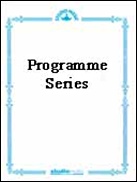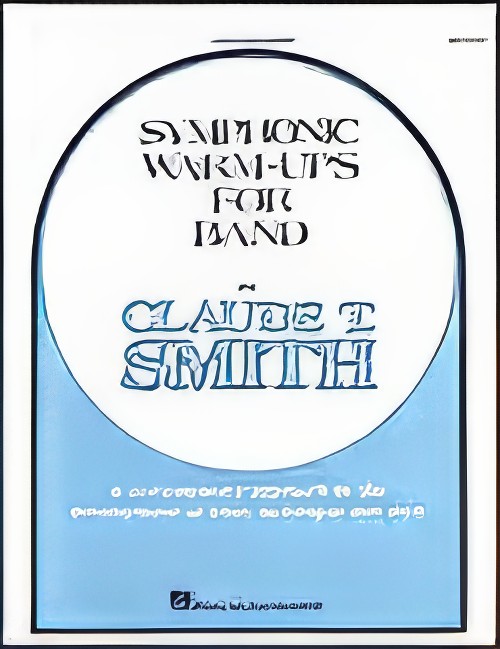Results
-
 £49.95
£49.95PROCESSIONAL (A Little Ceremonial Music No.3) (Programme Concert Band) - Wiffin, Rob
This spirited work can be played simply as a concert piece, but would be very appropriate for occasions such as weddings or graduation ceremonies. Duration 3'15"
Estimated dispatch 7-14 working days
-
 £69.95
£69.95REEL TIME British Dances No.3 (Programme Concert Band) - Wiffin, Rob
This work seeks to capture the quintessential spirit of Irish Reels. Like Grainger's Molly on the Shore, Reel Time is a work-out for the woodwind, not that the brass remain completely unscathed! The reels appear in various guises and the dancing becomes more frenzied as the pace accelerates to the end.
Estimated dispatch 7-14 working days
-
 £5.99
£5.99SYMPHONIC WARM-UPS FOR BAND (Bb Clarinet 3) - Smith, Claude T.
Claude Smith's contemporary approach to teaching technique, tone and style is written in a variety of keys and meters and is divided into three sections: I. Scale Studies II. Etudes III. Chorale Studies. The etudes and chorales are in progressive order of difficulty so bands of all levels can find appropriate starting places and progress from there. It's the perfect way to begin every rehearsal.
Estimated dispatch 7-14 working days
-
 £248.99
£248.99Symphony No 3 - The Great Spirit (Mvt. 1) Wind Band Set (Score & Parts)
The Great Spirit is a two part symphonic work that Ferrer Ferran dedicated to the famous Spanish architect, Antoni Gaudi. Ferran depicts various stages of the life of this ingenious architect and master of round, organic forms and shapes: from his humble beginnings to working on the Sagrada Familia, which would turn into a life-long task. Mirroring Gaudi's architecture, the musical lines of Gaudi are fluid and organic, the structure expansive, rich in colour and spellbinding, just like the buildings of the great Catalan architect. 14:45
Estimated dispatch 7-14 working days
-
 £289.99
£289.99Symphony No 3 - The Great Spirit (Mvt. 2) Wind Band Set (Score & Parts)
The Great Spirit is a two part symphonic work that Ferrer Ferran dedicated to the famous Spanish architect, Antoni Gaudi. Ferran depicts various stages of the life of this ingenious architect and master of round, organic forms and shapes: from his humble beginnings to working on the Sagrada Familia, which would turn into a life-long task. Mirroring Gaudi's architecture, the musical lines of Gaudi are fluid and organic, the structure expansive, rich in colour and spellbinding, just like the buildings of the great Catalan architect. 20:00
Estimated dispatch 7-14 working days
-
 £118.50
£118.50SYMPHONY No.3 (Organ Symphony) Finale (Concert Band) - Saint-Saens, Camille - Lorriman, Howard
Estimated dispatch 7-14 working days
-
 £3.95
£3.95 -
 £3.95
£3.95TIME TRAVEL (Part 3 in E flat) - Strachan, Keith
Tenor Horn, Alto Saxophone
Estimated dispatch 7-14 working days
-
 £3.95
£3.95 -
 £3.95
£3.95TIME TRAVEL (Percussion 3) - Strachan, Keith
Xylophone, Glockenspiel
Estimated dispatch 7-14 working days
